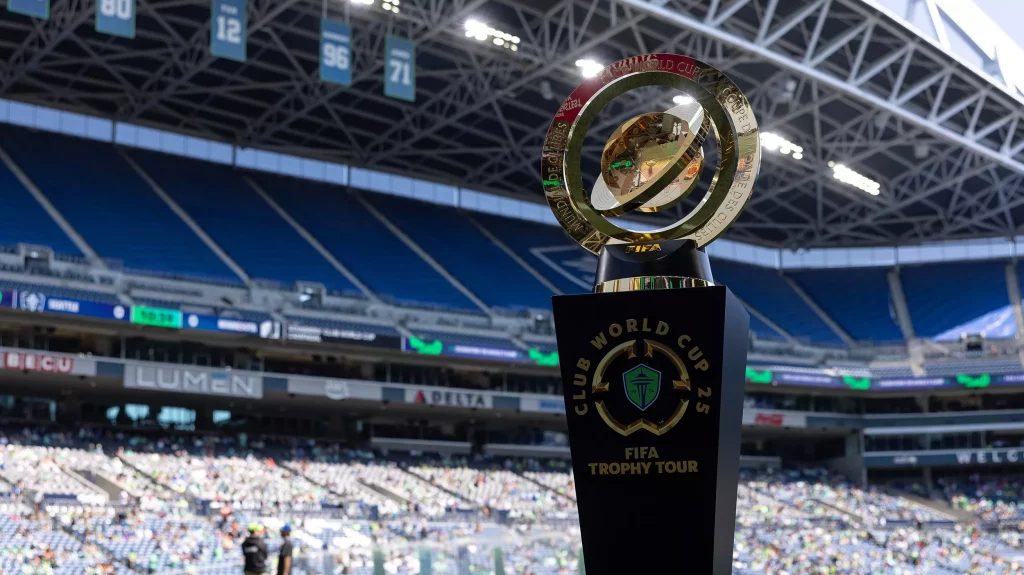The world of football has long been scrutinized not only for its on-field drama but also for the financial strategies and controversies that shape the game behind the scenes. In recent years, concerns about what some term “financial doping”—the unfair financial advantages certain clubs gain through disproportionate sponsorship deals, state backing, or shadowy funding—have come to the forefront. This issue reached a critical point with the high-profile investigations into Manchester City’s sponsorship arrangements between 2023 and 2025, which many believe tested the boundaries of financial fair play regulations. These developments have sparked intense debate on whether FIFA should adopt financial doping tests alongside traditional drug screenings to safeguard the sport’s integrity, ensure competitive balance, and maintain consistent punishments. This article explores the parallels between financial doping and doping in sport, examines current competitive balance proposals, and discusses the challenges in enforcing punishment consistency across football’s elite.
Man City’s 2023-25 Sponsorship Investigation Parallels
Manchester City’s sponsorship deals have come under particular scrutiny due to allegations that certain agreements were artificially inflated to mask the true source of funding, thereby circumventing UEFA’s Financial Fair Play (FFP) rules. Between 2023 and 2025, various investigative bodies probed the nature and valuation of these sponsorships, sparking wider concerns about financial doping. The argument put forth is that by inflating sponsorship revenue, clubs effectively “dope” their finances, gaining unfair purchasing power in the transfer market and wage structures. This practice arguably undermines fair competition, mirroring how doping in athletes provides an illicit edge.
The parallels between drug doping and financial doping are striking. Both represent methods to gain an advantage that violates established rules, distort competitive equality, and damage the sport’s reputation. While drug tests are now routine and technologically advanced, detecting financial doping remains a far murkier challenge. Unlike physical substances, financial doping is embedded in complex corporate arrangements, making detection difficult without comprehensive transparency and rigorous oversight.
The Manchester City case exemplifies the challenges FIFA faces in policing financial misconduct. Despite the UEFA Club Financial Control Body imposing sanctions and fines, critics argue that existing measures fail to deter repeated offenses or restore competitive balance fully. These events have fueled calls for a formalized “financial doping” test, with clearly defined parameters, regular audits, and standardized penalties akin to doping controls in athletes.
Competitive Balance Proposals
Ensuring competitive balance is a fundamental goal of sports governance. Football’s global popularity depends on unpredictability and the genuine possibility for a wide range of clubs to succeed. The rise of hyper-funded clubs, often bankrolled by sovereign wealth or oligarchic money, has distorted this balance, concentrating success among a shrinking elite. The introduction of financial doping tests is being considered as a means to restore fairness by detecting and penalizing artificially enhanced financial power.

Proposals for competitive balance extend beyond testing. They include stringent salary caps, limits on transfer spending relative to revenue, and more transparent reporting requirements. Financial doping tests would complement these by focusing on the authenticity of revenue streams, sponsorship valuations, and owner contributions. For example, independent valuation committees could assess sponsorship deals to ensure market conformity, preventing clubs from disguising owner injections as commercial income.
Another dimension of competitive balance is the transparency of club ownership and financing sources. Greater disclosure would help regulators identify conflicts of interest and potential financial doping risks. Some suggest that financial doping tests should be integrated into a wider governance overhaul, including stricter licensing and monitoring systems, designed to create a level playing field while preserving the sport’s commercial growth.
Punishment Consistency Debates
One of the most contentious aspects of addressing financial doping is the consistency of punishment. Football has a history of uneven enforcement, where penalties vary widely depending on the club’s profile, the governing body’s jurisdiction, and the legal battles waged by clubs. This inconsistency undermines the deterrent effect of financial regulations and fuels skepticism about fairness.
Financial doping tests would necessitate clear, standardized sanctions to maintain credibility. Punishments could range from fines and transfer bans to point deductions and disqualification from competitions. However, deciding the proportionality of these sanctions is challenging. Unlike doping in athletes, where evidence is often straightforward and consequences well codified, financial doping cases involve intricate financial data and legal interpretations.
The debate also extends to whether punishment should target clubs, owners, or individuals within the organization. Some advocate for harsher consequences against owners and executives responsible for financial malpractice, while others warn that punishing clubs too severely harms players and fans uninvolved in wrongdoing.
A further complication is the international nature of football. Different leagues and confederations have varying financial regulations and enforcement capacities. Achieving consistency would require global cooperation and possibly the establishment of an independent international body dedicated to financial oversight in football, operating with the same rigor as anti-doping agencies.
Conclusion
The idea of implementing financial doping tests alongside traditional drug screenings presents a compelling evolution in football governance. Manchester City’s recent sponsorship investigations have laid bare the complexities and consequences of unchecked financial manipulation. As football grapples with the challenge of maintaining competitive balance amid increasing commercial pressures, financial doping tests offer a promising tool to enforce transparency, fairness, and accountability.
However, designing and enforcing such tests will not be without hurdles. The opaque nature of global football finances, jurisdictional disparities, and punishment debates must be carefully navigated to avoid unintended consequences. Nonetheless, the pursuit of a level playing field demands innovative approaches. Financial doping tests could become a cornerstone of that effort, ensuring football remains a sport where skill and strategy—not financial subterfuge—decide the outcome.






























Discussion about this post